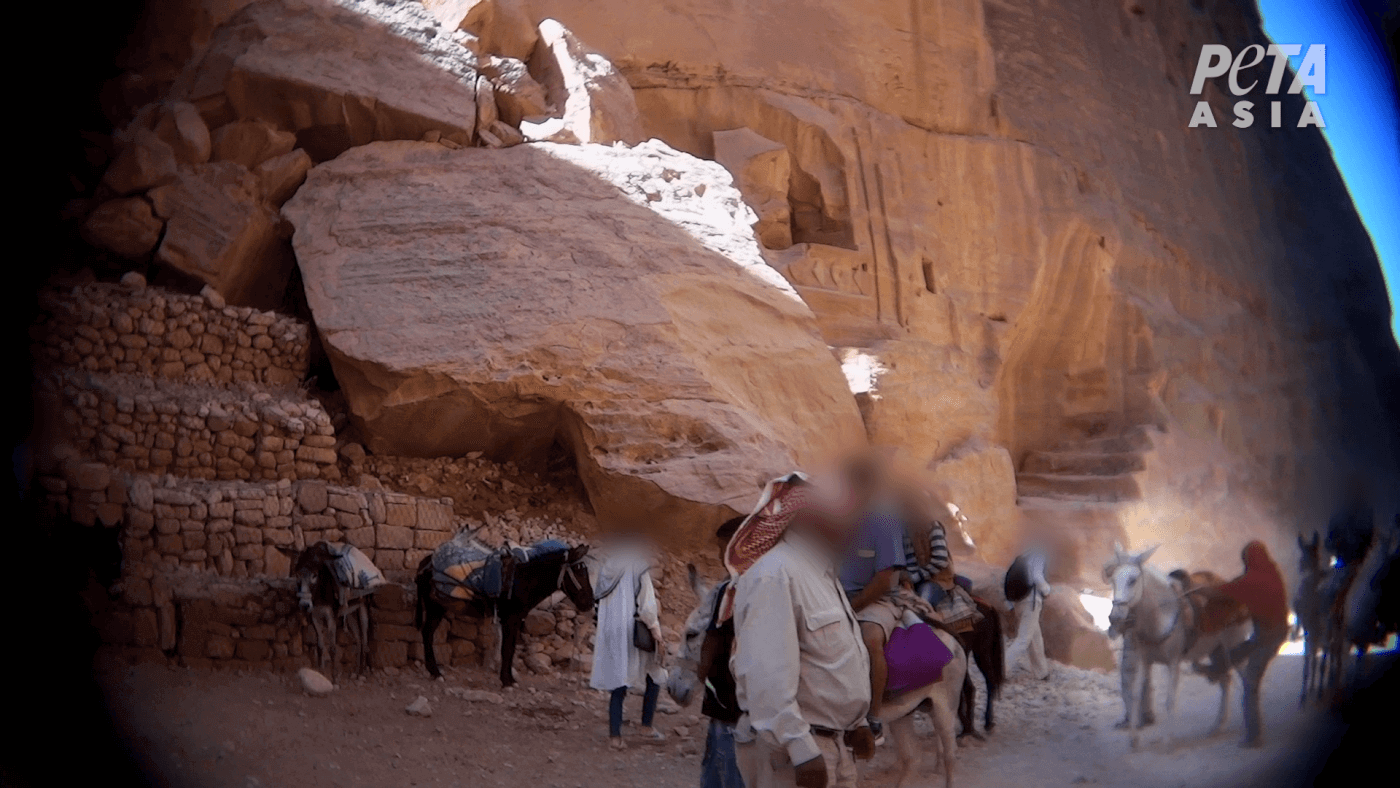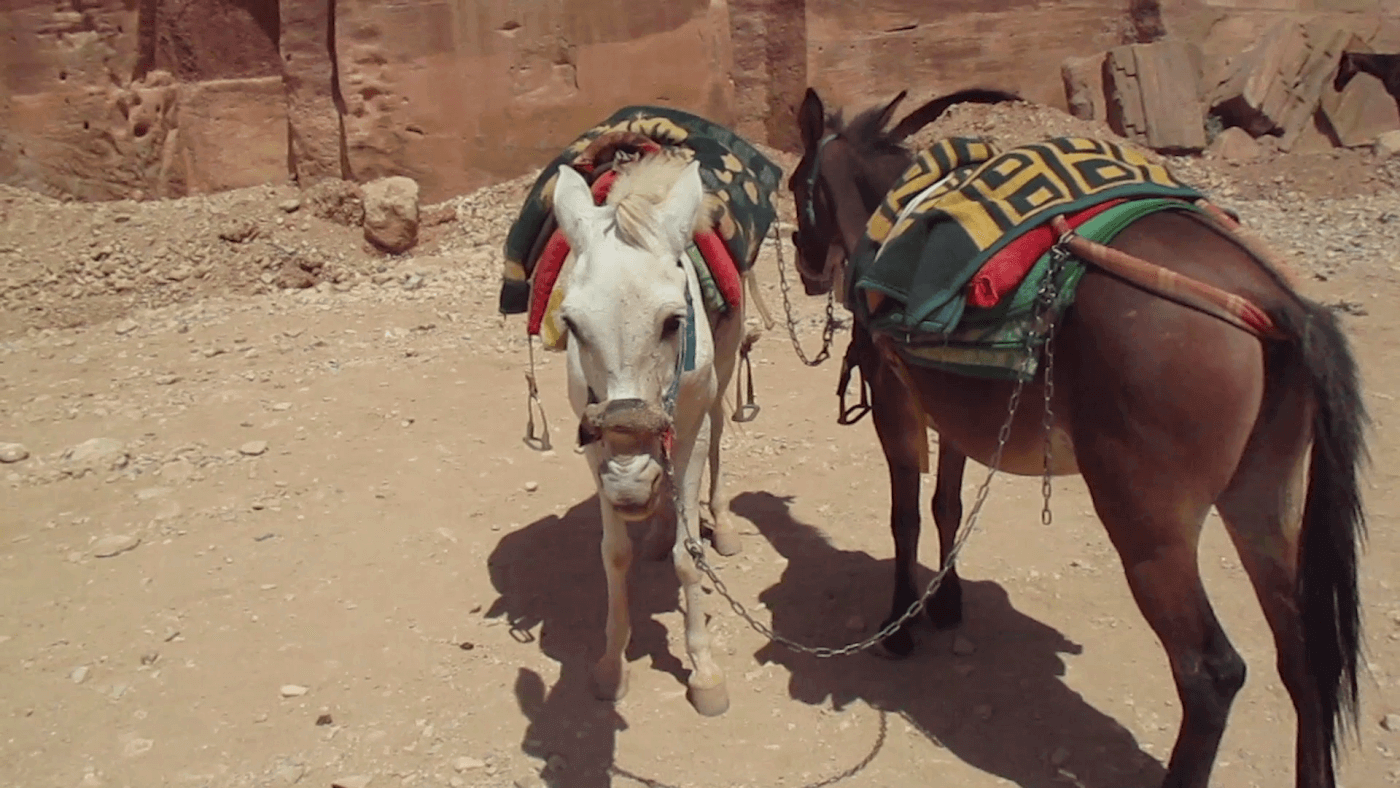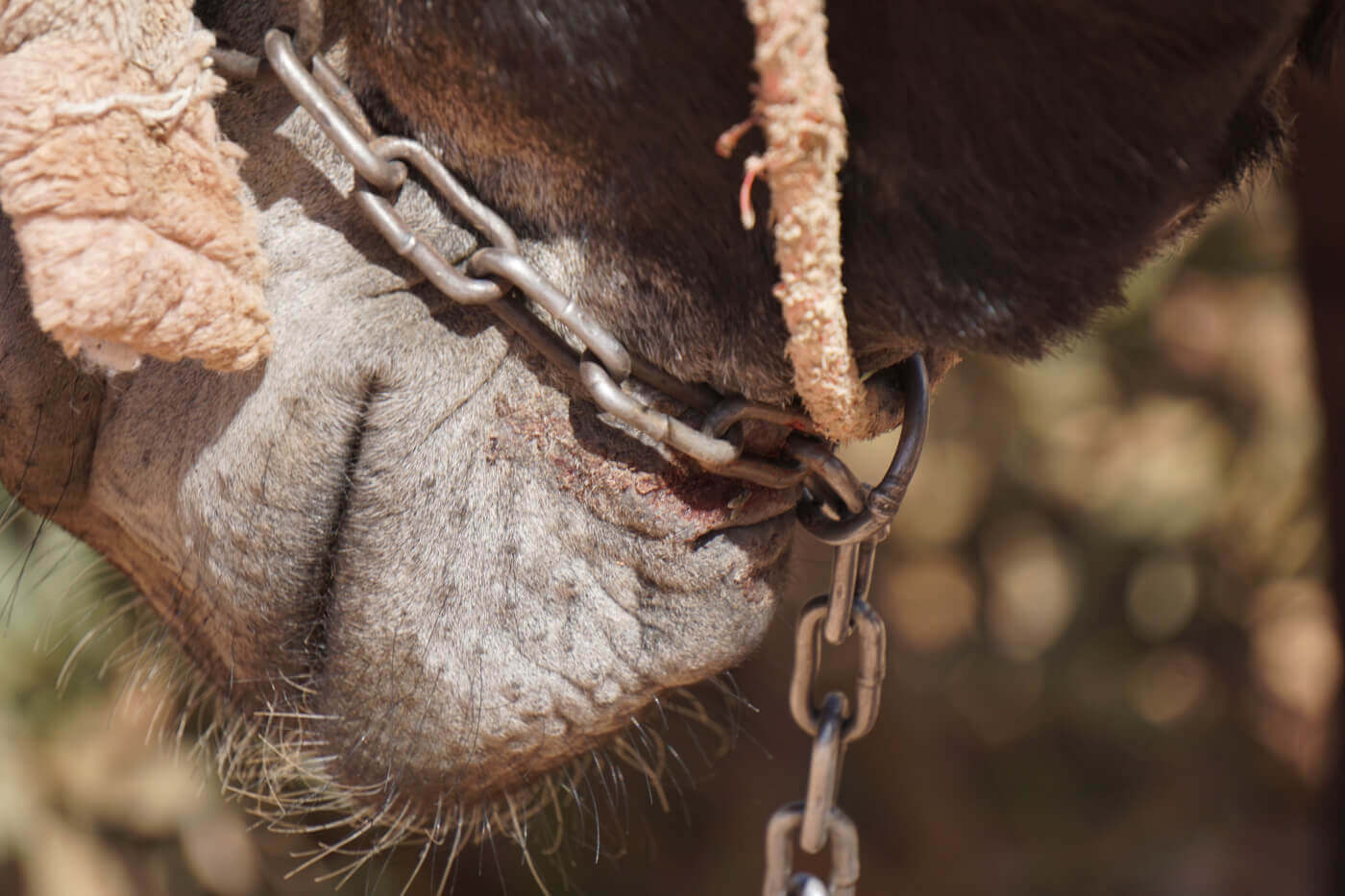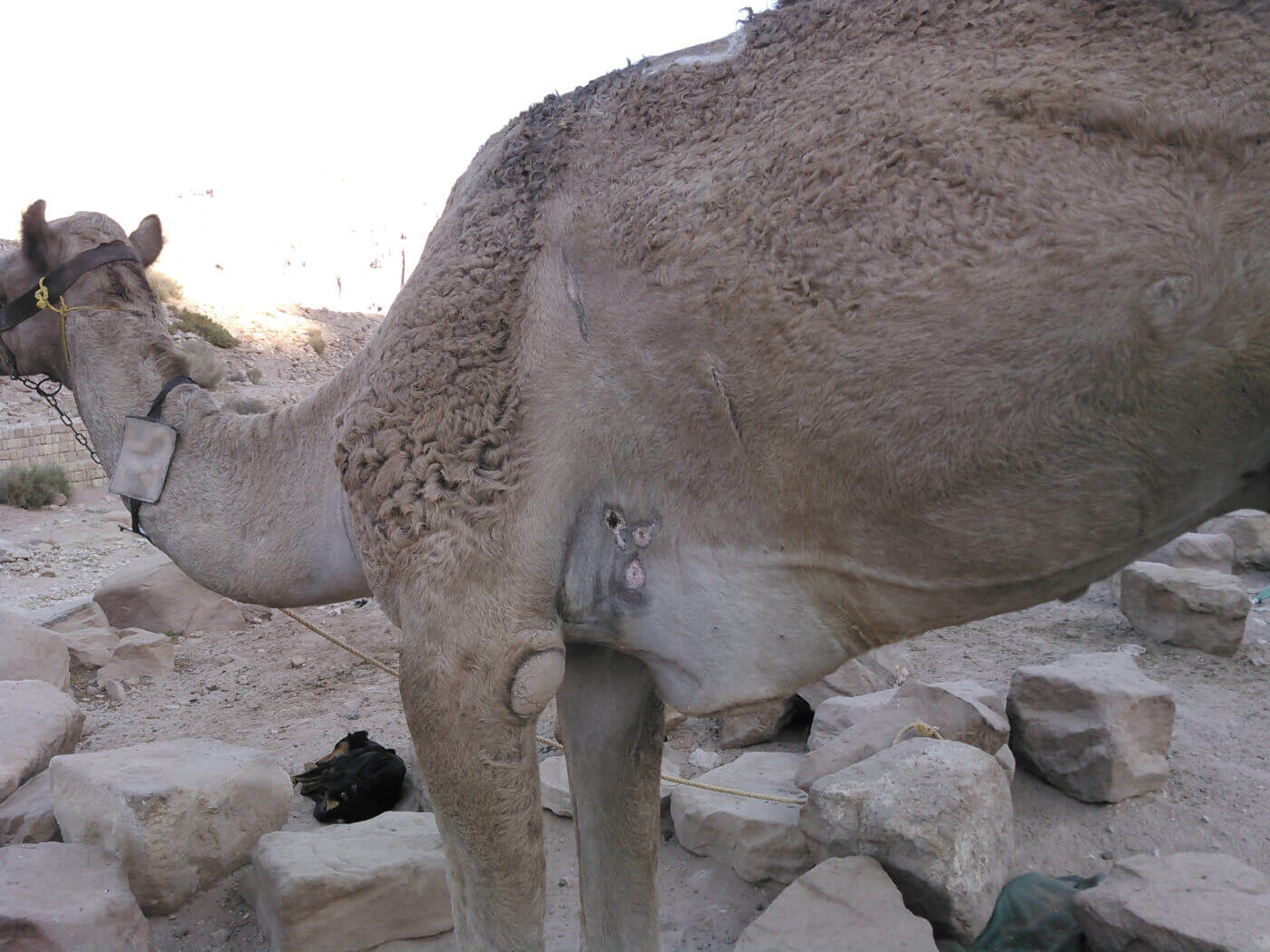Update January 2022
After years of pushing by PETA and our compassionate supporters, the Petra Development and Tourism Region Authority has launched a fleet of 10 eco-friendly electric vehicles to replace the horse-drawn carriages that previously ferried tourists around the UNESCO World Heritage Site.
While this saves some horses from being used to pull heavy carriages, hundreds of donkeys are still forced to give tourist rides. The donkeys must climb up and down the 900 steps to the monastery with visitors on their backs multiple times a day under extreme weather conditions.
All animal rides must be banned at this site.
An on-site veterinary clinic funded by PETA treats donkeys, horses, camels, and other animals who have been injured or worked to exhaustion – all at no cost to their owners. The animals suffer from malnutrition, hoof deformities, abscesses, skin conditions, anaemia, and other issues, and most bear painful saddle sores, are lame, or have wounds where hobbles have eaten into their flesh. Some have been deliberately cut with razor blades, stoned, or tasered by disaffected young people. Most have never seen a veterinarian in their lives.
The introduction of this vehicle fleet is great progress, but to prevent further suffering, the destination needs to replace all animal rides with mechanised vehicles.
Original:
Visitors go to Petra to marvel at its ancient monuments and temples, yet the “Lost City” has a dark and ugly side: more than 1,300 horses, donkeys, and camels are forced to carry tourists or pull carriages in the city every day, and they are suffering immensely.
Handlers routinely whip and beat the animals, even hitting them in the head with rocks, as they haul tourists on a gruelling 10-kilometre trek in the sweltering heat, and there’s no water or shade for them. Donkeys are forced to carry people up and down the 900 treacherously steep and eroded stone steps to the city’s monastery. If they resist or falter, the beatings often intensify.
Donkeys have fallen over the edge, and young people have deliberately pushed them over.
Authorities’ lack of interest in helping these animals is blatant: indignant tourists are directed by the Petra Development and Tourism Region Authority to report cruelty to animals by sending a message to an e-mail address that doesn’t even work.
Beaten and Broken
Handlers repeatedly hit the weary animals with anything at hand – including hard plastic pipes, ropes, chains, whips, and even rocks – to keep them moving.
Even when animals are too exhausted to go on, they are often viciously beaten. When one donkey balked at carrying more tourists after having just finished a tour, he was kicked in the stomach by his handler so hard that even a bystander recoiled, and although the poor donkey attempted to escape the attack, he couldn’t. He was tethered and unable to run away.
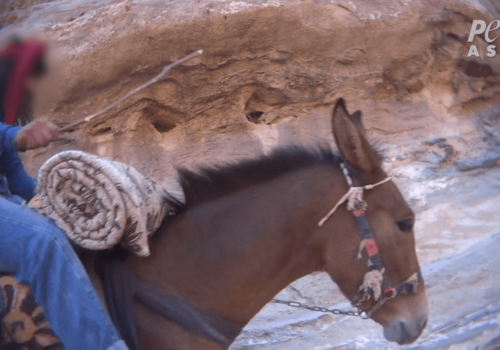
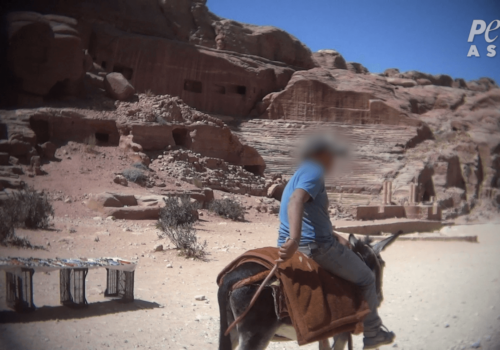
Hot and Thirsty
Despite working all day long in the blistering desert heat, working animals are deprived of water until the end of the day when they return to the “stables” – where the only source of water in the Petra Archaeological Park is located.
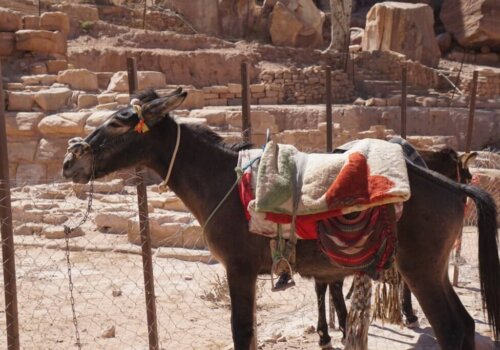
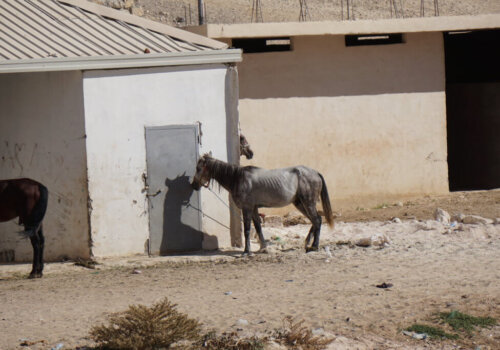
Between rides, they’re kept tied up, with no shade or relief from the heat. Some are tied so tightly that they can’t even lie down but instead have to wait for the next paying customer while standing up. In winter, they are left shivering in the bitter cold of the desert night, often hungry and without shelter or a blanket. They have nothing to keep them warm.
Wounded and Bleeding
Many of the animals had wounds caused by the chains and ropes tied tightly around them. Men even looped metal chains over the donkeys’ faces, which cut into their flesh.
A PETA Asia eyewitness filmed camels forced to work despite having fly-infested, open wounds caused by their bridles – a daily sight.
Animals Need Your Help
Jordan can and must replace Petra’s working horses, donkeys, mules, and camels with modern motorised vehicles and spare them a lifetime of suffering. Please urge UNESCO to act now.

